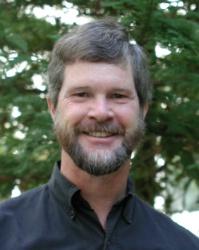IMS Affiliated Faculty

- Title
- Distinguished Professor Emeritus
- Division Physical & Biological Sciences Division
- Department
- Earth & Planetary Sciences Department
- Institute of Marine Sciences
- Affiliations Environmental Studies Department
- Phone 831-459-3842
- Website
- Office Location
- Earth & Marine Sciences A210
- Mail Stop Earth and Planetary Sciences
Summary of Expertise
Petrology and Geochemistry
Research Interests
Jim Gill currently has two research foci: the chemical evolution of continental and oceanic crust, and short-lived radionuclides in young volcanic rocks.
The first involves study of Quaternary volcanic rocks in various tectonic settings, which currently include subduction-related rocks in the Fiji-Tonga-Kermadec, Mariana-Izu-Kuriles, MORB at the Endeavour and Axial segments of the Juan de Fuca Ridge, and continental rift-related rhyolites in northeast China. Some of these are marine projects, using submersibles, ODP, and conventional expeditions. Projects involve fieldwork, elemental analysis by XRF and ICPMS, mineral analysis by EPMA, and Sr-Nd-Pb-Hf isotope ratio analyses. See his webpage for more details.
His second focus is the use of short-lived decay of U and Th, and Th isotope ratios, to evaluate the processes and time-scales of magma formation, sea-level history, and groundwater response to tectonics. Two of the program's mass spectrometers are outfitted with pulse-counting capabilities to permit detection of short-lived nuclides of these elements. Current studies span MORB, OIB, and island arc rocks, and topics such as the controls of Th-U-Ra partitioning, source tracers, the age of magma at the time of its eruption, and Late Quaternary geochronology.
Gill is eager to combine these two foci through detailed study of active volcanoes and historic eruptions. His teaching includes mineralogy, trace-element and isotope geochemistry, igneous petrology, and graduate seminars on volcanology and magma genesis.
Biography, Education and Training
B.S., Wheaton College
M.S., Franklin and Marshall College
Ph.D., Australian National University
Teaching Interests
Magmas and Volcanoes
Solid Earth Geochemistry
Petrology and Plate Tectonics
Science and Land Use Planning
